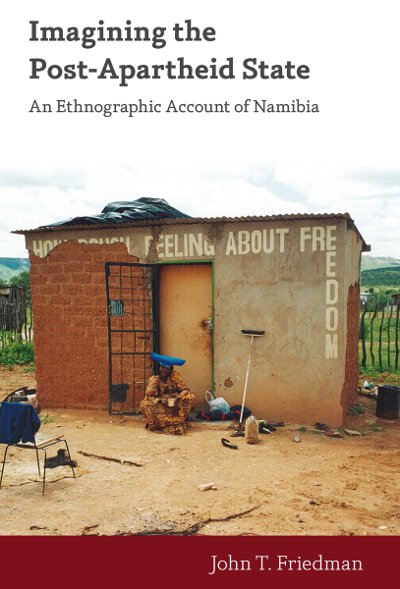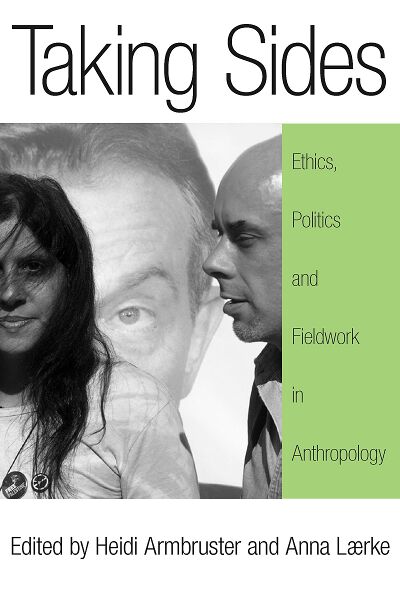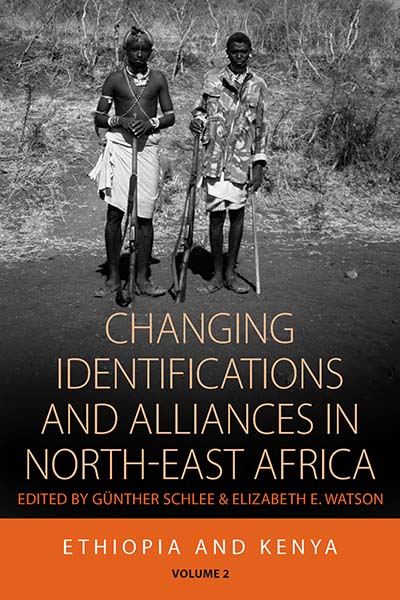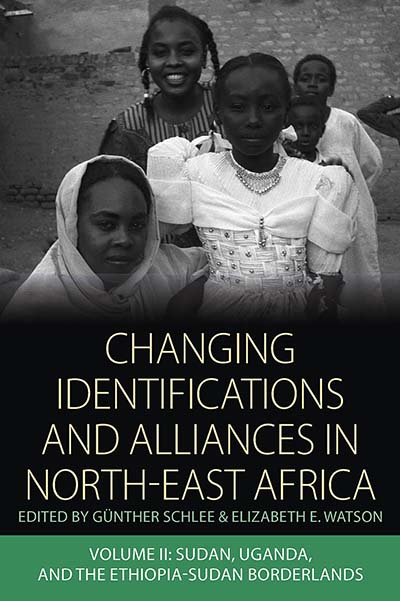
See Related
Anthropology JournalsEmail Newsletters
Sign up for our email newsletters to get customized updates on new Berghahn publications.
Imagining the Post-Apartheid State
An Ethnographic Account of Namibia
John T. Friedman
324 pages, 22 illus., bibliog., index
ISBN 978-0-85745-090-6 $135.00/£104.00 / Hb / Published (July 2011)
ISBN 978-1-78238-323-9 $34.95/£27.95 / Pb / Published (October 2013)
eISBN 978-1-80758-774-1 eBook
Reviews
“John Friedman convincingly uses the ethnographic context of Kaokoland in Northern Namibia as a point of departure for a novel understanding of the African state. His account favors complexity and nuance over the simplistic and generalized renditions so commonly rehearsed in the literature... Friedman’s [book] is a highly original] and important piece of serious scholarly work, one that promises to shape current and future academic debates in anthropology and other cognate disciplines on the workings of the state in Africa.” · PoLAR
“…a well-written and provocative account of postapartheid politics in Namibia… this book makes an important contribution to our understanding of state-society relations in Namibia. Anthropologists, historians, and political scientists will benefit from Friedman’s conceptual frameworks and his application of these frameworks to what is happening at the local level.” · Journal of African History
“These three parts of the main analysis are interlaced with vignettes in which the author reflects upon his own position as an ethnographer (his earlier writings, for instance, became an instrument in the ongoing power struggle and the fractioning of chiefly authority in the region’s capital), and with pictures taken by and commented upon by his friends and collaborators. These evocative vignettes complement and counterbalance the main narrative in that they demonstrate in rich detail and in direct speech the complexities of the ‘imagination of the state’ in Kaoko.” · JRAI
“This is a stimulating and timely contribution to the ongoing debate on the state in Africa, offering [considerable] ethnographic riches.” · African Affairs
“Friedman’s innovative approach—ethnographically capturing the state through the political imaginations of those who inhabit it—succeeds in yielding fascinating insights pertaining to the mutually constitutive relationship between government and the governed and thus opens up fruitful avenues of inquiry. Scholars of political science, social anthropology and development studies alike will greatly benefit from this thought-provoking study.” · African Studies Quarterly
“An original and thought-provoking study…The book’s aim to write an ethnography of the State raises seminal issues of much broader interest to African studies and anthropology in general. Moreover, the book is well structured and well written, combining vivid ethnography with innovative theoretical considerations which are well positioned in an overview of successive trends in political anthropology…This makes the book of direct interest not only to Africanists or anthropologists, but also to social scientists in general (notably political scientists) and to everybody interested in the unsettling aspects of the role of the State in present-day Africa.” · Peter Geschiere, University of Amsterdam
Description
In northwest Namibia, people’s political imagination offers a powerful insight into the post-apartheid state. Based on extensive anthropological fieldwork, this book focuses on the former South African apartheid regime and the present democratic government; it compares the perceptions and practices of state and customary forms of judicial administration, reflects upon the historical trajectory of a chieftaincy dispute in relation to the rooting of state power and examines everyday forms of belonging in the independent Namibian State. By elucidating the State through a focus on the social, historical and cultural processes that help constitute it, this study helps chart new territory for anthropology, and it contributes an ethnographic perspective to a wider set of interdisciplinary debates on the State and state processes.
John T. Friedman is Associate Professor of Socio-cultural Anthropology at the University College Roosevelt of Utrecht University, The Netherlands. Before training as an anthropologist at Cambridge University, he worked in the field of international development. He has been researching and working in Namibia since 1993.




